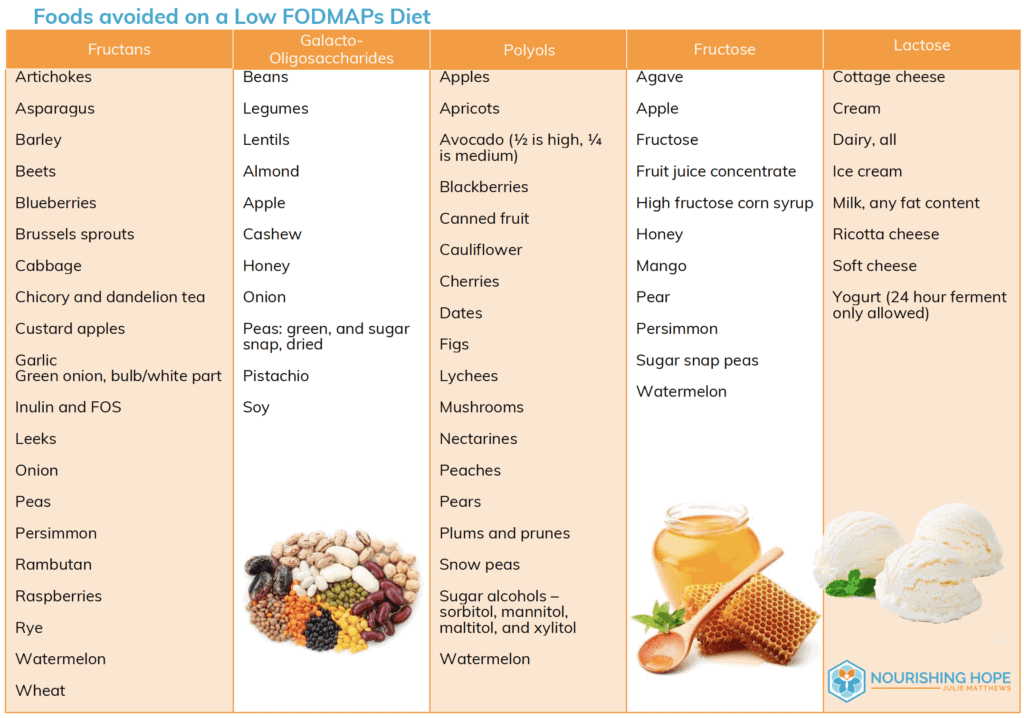Low FODMAPs Diet
FODMAPs is an acronym for fermentable oligo-, di-, monosaccharides and polyols – which are short chain carbohydrates and alcohol sugars fermented by bacteria. And the Low FODMAPs diet is an elimination diet that removes / reduces these foods when they cause difficulty for an individual.
Low FODMAPs Diet restricts foods such as: certain fruits with high fructose like apples, pears and mango; high fructose corn syrup; lactose-containing dairy products; fructans such as onions, garlic, inulin, and wheat; galacto-oligosaccharide rich foods including beans and legumes, as well as foods with polyols like avocados and prunes.

How a Low FODMAPs Diet Works
The sugars reduced or eliminated on a Low FODMAPs Diet need to be digested and absorbed in the gastrointestinal tract, and some people have a decreased ability to digest these disaccharides and/or absorb the monosaccharides. Oligosaccharides and polyols need to be fermented by bacteria, and some people have either too much or too little of the wrong bacteria in the wrong place, causing pain and digestive upset with these carbohydrates and sugar alcohols.
When you consume FODMAPs, they travel through the gut and are a food source for your gut microbiome. Unfortunately, when imbalanced gut bacteria eat FODMAPs they can produce hydrogen or methane gas – causing gastrointestinal discomfort in sensitive people. FODMAPs can also trigger diarrhea by bringing water into the gut. For people with a food intolerance to FODMAPs, symptoms may include gas, bloating, distension, diarrhea, or constipation.
FODMAPs have been linked with IBS, and a Low FODMAPs diet has shown to reduce IBS.
Research has shown that some individuals with autism are low in carbohydrate digesting enzymes and have poor absorption of one monosaccharide, aka fructose malabsorption. This may make them more reactive to FODMAP rich foods.
Many children and adults with neurological conditions and problems with focus, attention, mood, anxiety, etc. have digestive conditions and bacterial imbalances. When these digestive imbalances lead to FODMAP intolerance, a Low FODMAPs Diet is often helpful.
I teach parents and individuals in my Nourishing Hope for Healing Kids program and practitioners in my BioIndividual Nutrition Training how to successfully implement a healthy Low FODMAPs diet based on the unique needs of the individual.
You can learn more about these and other special therapeutic diets here. And you can find Low FODMAPs Diet recipes I have created here.

